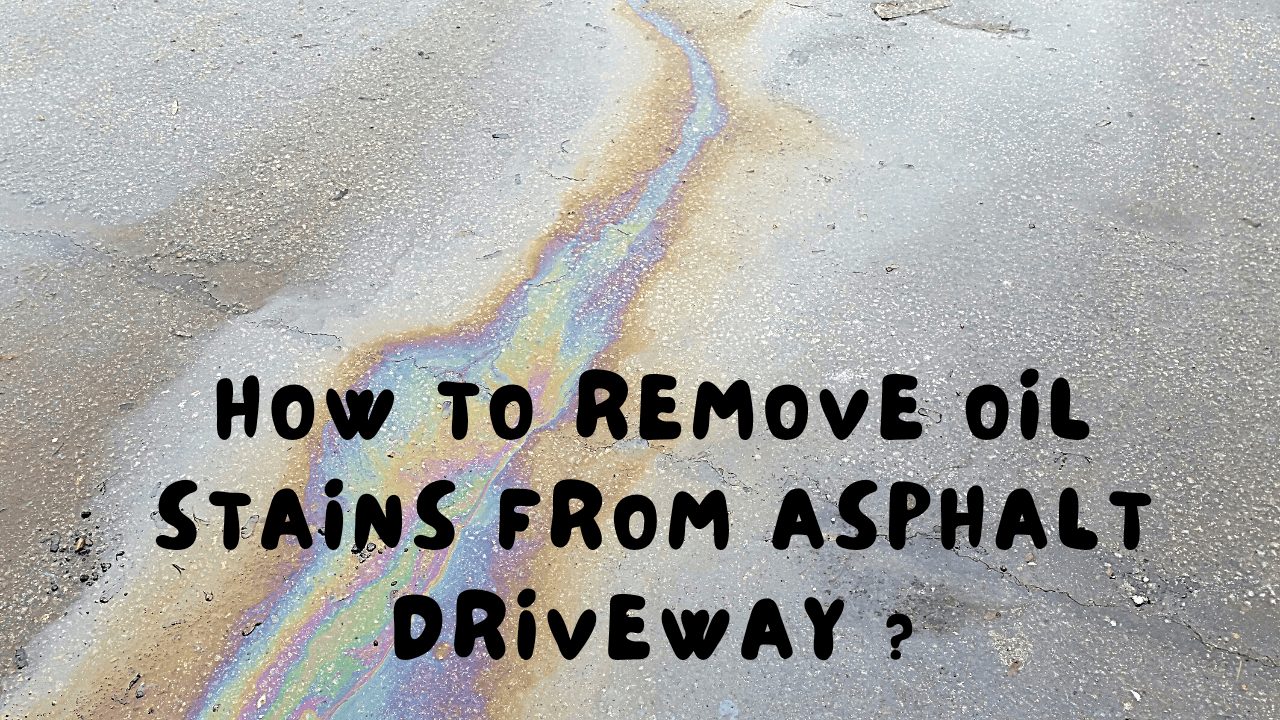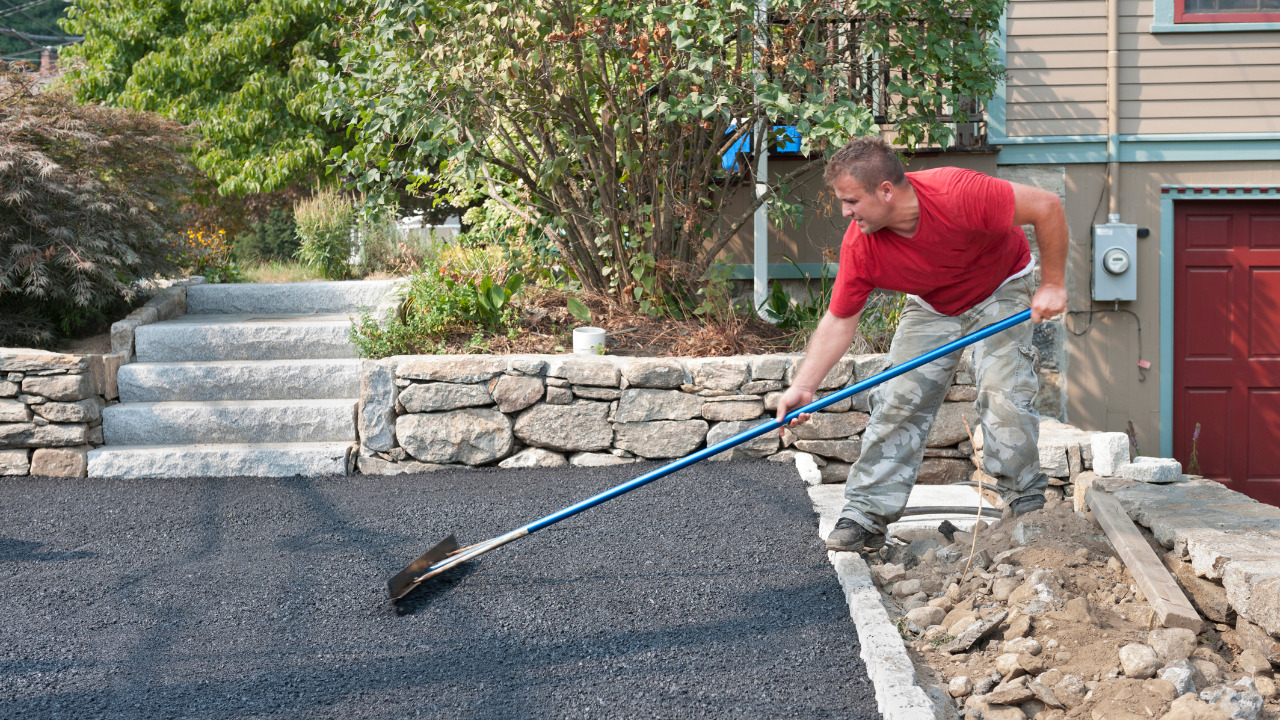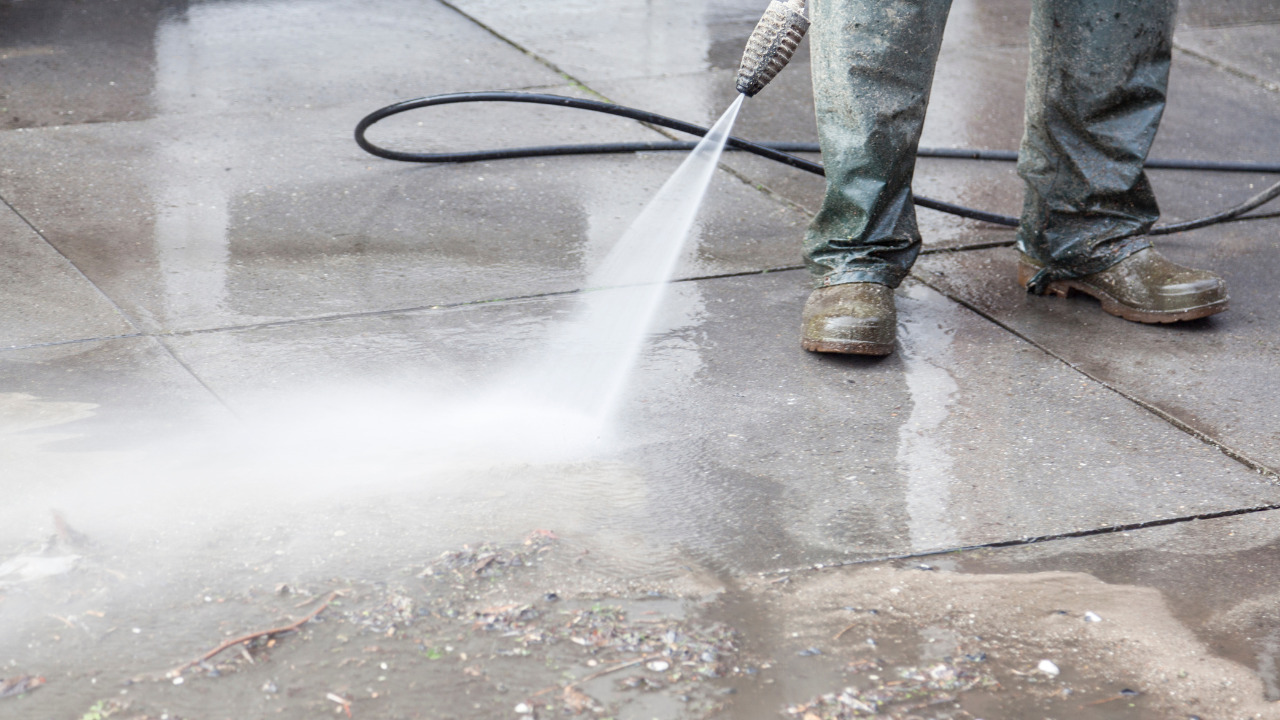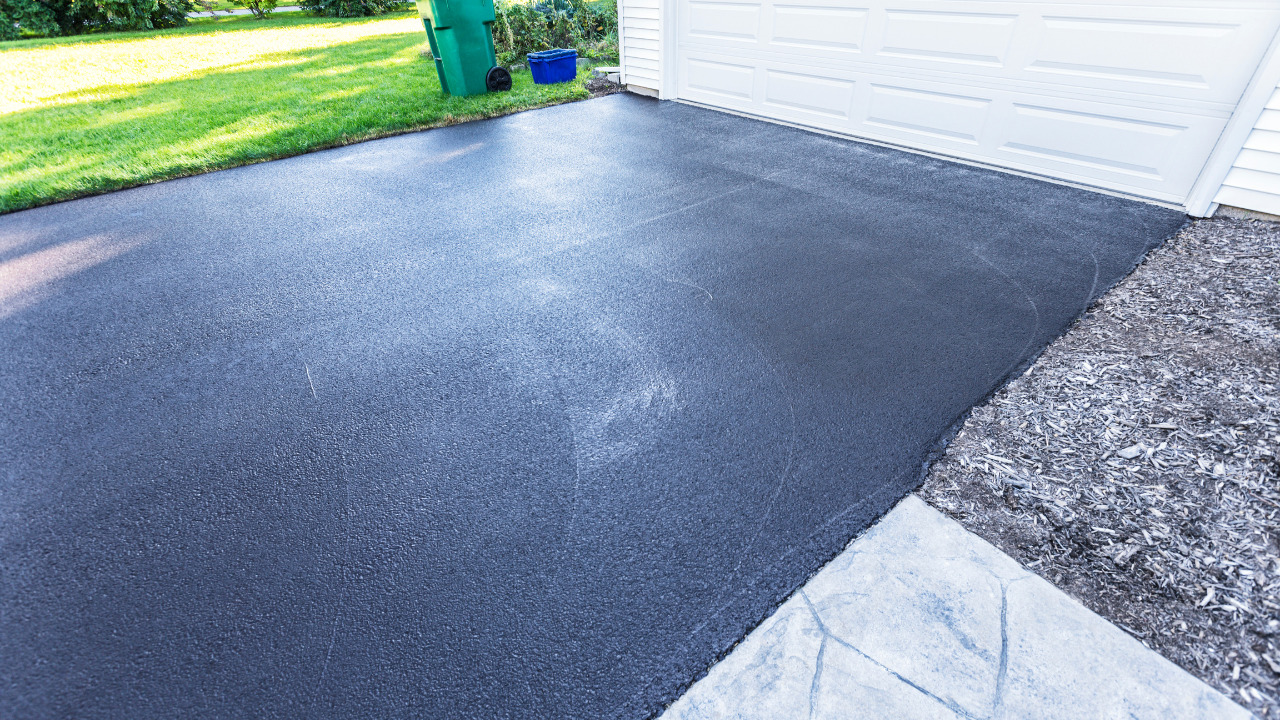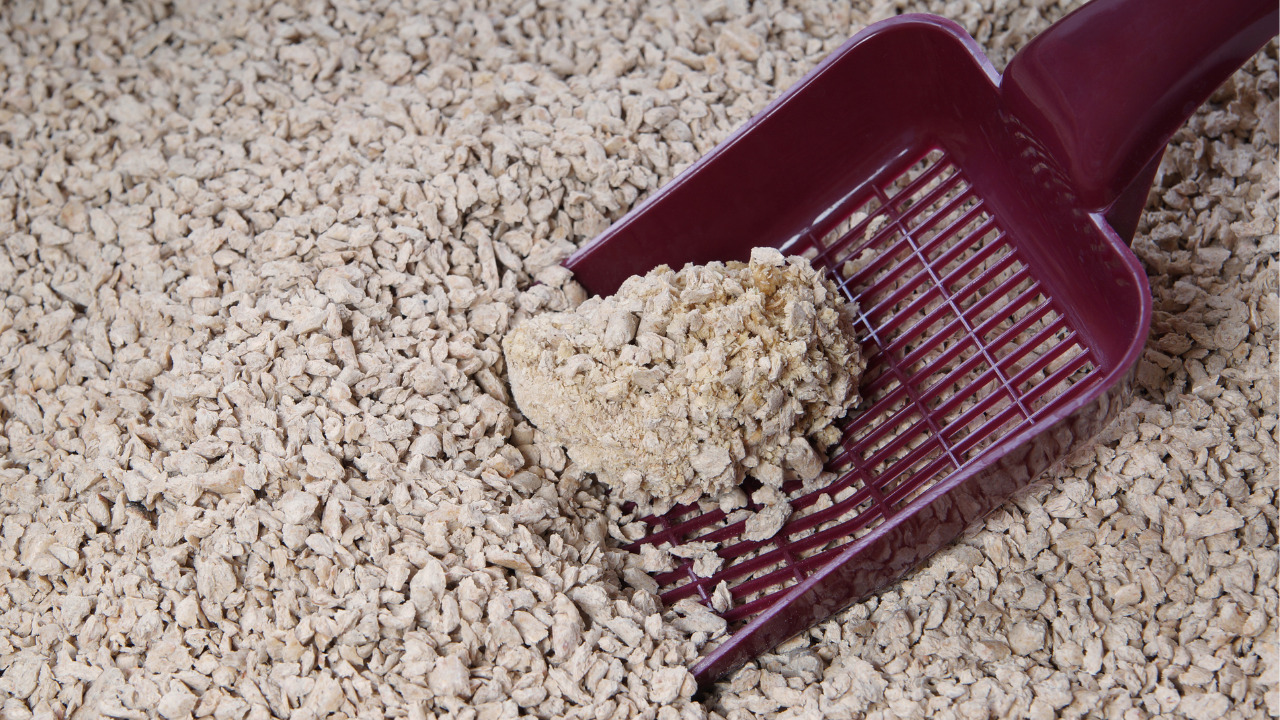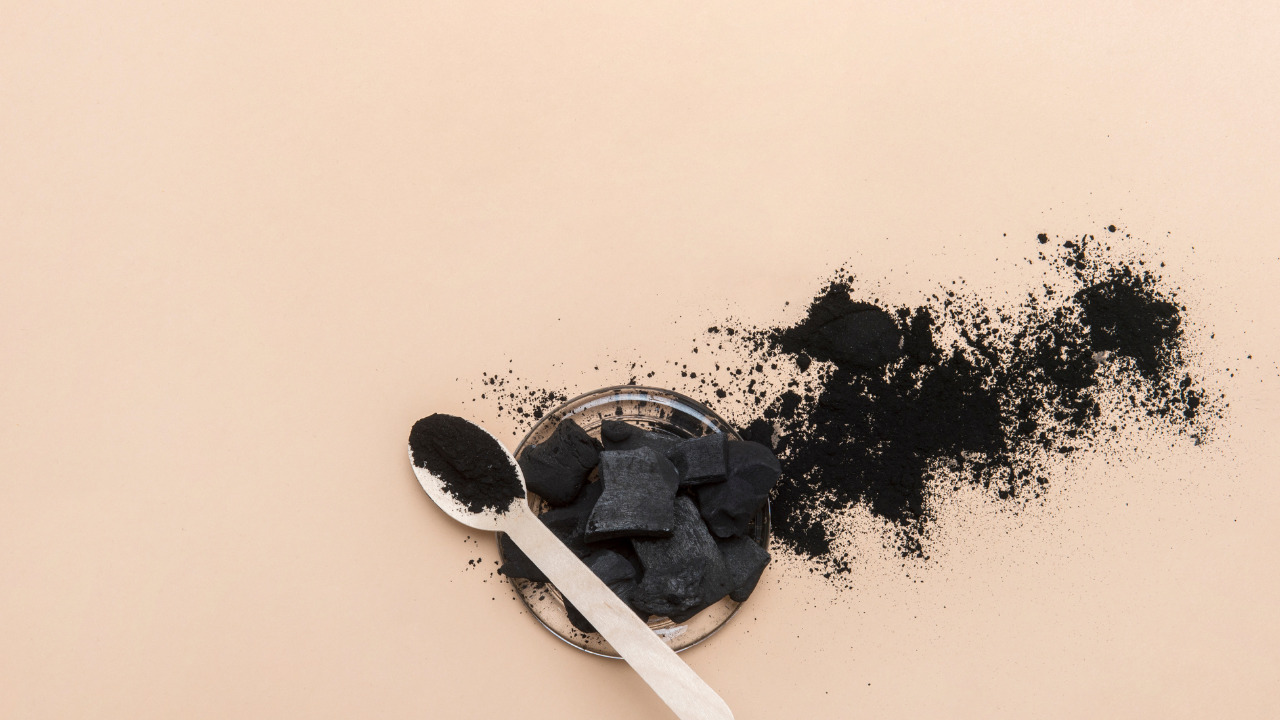Oil stains on asphalt driveways are ugly and can be tracked inside your home or car. It’s not like cleaning up a food spill on your kitchen floor to remove oil stains from your asphalt driveway. Instead, change your tactics and employ more power with chemicals that successfully break up the oil.
Your asphalt pavement will disintegrate if oil spots are left untreated. Your pavement comprises sand and aggregates bonded with asphalt pavement, a binder. Oil will dissolve the binder, resulting in raveling. The top of your asphalt pavement may grow spongy if the oil stain is ignored for a long time.
Oil stains should always be treated as soon as feasible. The longer the stain is left on your pavement, the more it will soak into the asphalt, causing the surface to deteriorate swiftly.
Table of Contents
A Few Things You Need To Know About Asphalt
You have an advantage even before you start. Asphalt is a porous surface that is less permeable than concrete. Asphalt tends to shed oil stains because it sheds water.
You can use force, chemicals, or a mix of the two to remove old oil stains from the asphalt. A pressure washer or a wire brush are all examples of force. Chemical degreasers are either petroleum-based or environmentally friendly.
Oil stains on a driveway are among the worst things that can happen to a home’s curb appeal. They’re undoubtedly unsightly, but did you know that if they’re not addressed, they can cause cracking and rotting in the asphalt of a driveway?
They’re signs that your blacktop driveway or parking lot suffers from degradation that could lead to significant decay and degeneration. If you don’t fix or replace it, this can cost you money in the long run.
Ways To Remove The Oil Stains From Asphalt Driveway
Removing stains on asphalt from oil, chalk, or paint can be challenging! To remove undesirable stains from your driveway or parking lot, follow these DIY tips and get fantastic results.
1) Use A Degreaser
Oil stains cannot be concealed by applying an asphalt seal coat on top of them. Even though they have a new seal coat, they’ll eat their way back to the surface. You’ll need an industrial-strength degreaser and oil stain remover to clean oil stains off of the asphalt.
With its eco-friendly recipe that is biodegradable and non-ammonia based, the degreasers may be used on both asphalt and concrete and effectively remove grease and oil. This means it’s safe to use around children and pets, and it can clean pet stains, kitchens, and bathrooms, as well as degrease engines and garbage cans.
2) Pressure Washing
Oil stains will be broken up and washed away by pressure washing an asphalt driveway. Pressure washing is a force to be reckoned with because it is pure force. Pressure washing with a needle-thin spray for a long time will not only break up the oil but may also break up the asphalt.
The difference between do-it-yourself pressure washing and professional labor is experience and superior instruments. Professionals will use a specific flat surface cleaning head that resembles a floor buffer to remove oil stains.
Professional pressure washers can remove even the most challenging oil stains while protecting your driveway with this equipment. There is less risk of breaking up the asphalt because the force is not as directed as a needle-thin spray.
3) Seal The Asphalt
Preventing something from happening in the first place is sometimes the wisest course of action. Seal coating your asphalt will help to prevent oil stains. A seal coat is an asphalt sealant that prevents oil stains, oxidation and water penetration. The goal of a seal coat is to keep your asphalt surface in good condition.
If your pavement is in good shape, a seal coat will help maintain it. If your pavement has oil stains that aren’t too saturated, you can clean the stains and seal coat the asphalt to avoid additional harm.
4) Use Clay-Based Cat Litter
Because cat litter is mainly made of granular clay, it absorbs and cleans oil stains from the asphalt similar granular clay. When cleaning oil from your asphalt using cat litter, use the clay-based litter. Use biodegradable cat litter made from newspaper or pine instead of silica gel.
Because many households already have cat litter on hand, cat litter has the advantage of being a rapid solution to mop up oil spills off the asphalt. Switch to pure granular clay kitty litter if you have used it for a long time. Granular clay is far more expensive than cat litter.
Baking soda, like fine clay or cat litter, can be absorbent. On the other hand, the more refined grains of baking soda is more difficult to remove from the asphalt.
5) Use High-Quality Stain Removers

Oil Stain Remover is a simple-to-use product that removes oil, grease, hydraulic fluid, and other oil-based stains. Apply the oil stain remover to the stained area after scraping off the build-up and washing the area. Allow the product to dry to powdery before sweeping the area.
Because some products are hazardous, use them with caution. While they are effective, they are also costly due to the large amount of product required.
6) Use Granular Clay
Bags or buckets of fine granular clay are sold to absorb oil and other liquids on the pavement. On recent, still oil pools, granular clay works well. Old, dried oil stains are typically impossible to remove with absorbent material.
Spread the granular clay over the oil spill with a broom after scooping it there. Keep the thickness between 1/2 and 1 inch to absorb the spill completely. After the oil has been absorbed, remove the absorbent and throw it away.
7) Use Coke
No, not because removing an oil stain makes you thirsty. Coca-Cola can be used to clean up oil stains. Wipe off any extra oil first. After that, dump a few cans of soda onto an oil stain and let it sit there all night. Then use a fresh cloth to wipe down the area.
It is inexpensive even though this isn’t the MOST efficient way to get rid of oil stains. So before pursuing more expensive options, why not give it a try?
Tips To Keep The Driveway Clean
Even if there are no stains on your parking lot or driveway, you should still think about scheduling seasonal cleanings to help keep the surface in good condition. Here are a few justifications for you to think about routinely scheduling expert parking lot cleaning:
- Having a tidy parking lot is important for your reputation.
- The lifespan of asphalt, particularly porous asphalt, is increased by routine street sweeping.
Parking lots that are kept tidy deter littering. - Surface cleanliness reduces contamination of nearby rivers.
- Erosion is avoided by properly maintaining and cleaning asphalt.
- A spotless exterior repels rodents and other pests
Conclusion
You have several choices for dealing with oil stains. The most crucial thing is that you act as quickly as possible. Allowing oil stains to soak into your pavement for an extended period will cause it to deteriorate and become more expensive to repair.

